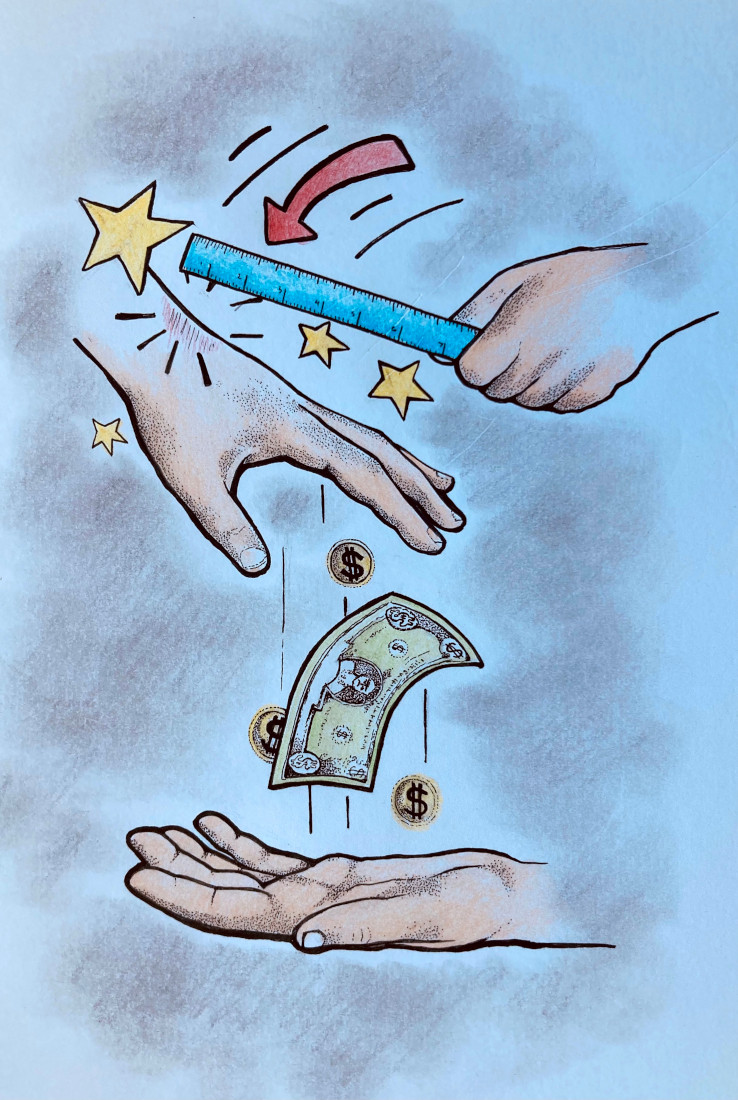Donation processing
The Freedom Convoy campus fallout
Illustration by Gabrielle Funk
Among the list of convoy donations from Manitoba were the names of several faculty members working at different universities in Manitoba. Three of these donations used faculty email addresses, including one using the name and email address of Joanne Boucher, who teaches at the University of Winnipeg in the political science department.
Students on campuses across the province have been processing and responding to the information, and there is not a clear mechanism in the structures of academia for doing so. One clear point of comparison would be the principle of academic freedom, often invoked when students and professors clash over politics, but the details of academic freedom do not apply to this situation.
In an email comment to The Uniter, Shannon Dea, professor and dean of arts at the University of Regina and author of “On the uses and misuses of ‘academic freedom’” published in University Affairs, explains that academic freedoms include a variety of freedoms, including the “freedom to engage in extramural expression (so, to speak publicly about matters),” which may be most applicable to this situation.
“Imagine that the donation was on a public GoFundMe page rather than a private GiveSendGo page. Imagine that the professor added a comment along with their donation. The combined donation and comment would count as extramural expression and be protected under an academic freedom article in the collective agreement. That expression might worry students,” she says, “but it is still protected.”
“It is worth saying though that the professor likely didn’t even intend the donation as extramural expression,” they say. “As I understand it, these donations were all made on the down-low. They were publicized by the hackers, not by the donors.” She notes that the issue may be being addressed through another policy, such as the Respectful Working and Learning Environment policy.
Lili Lopez, alum of the University of Winnipeg political science department, is looking at options for raising concerns with the department head.
Dea says that, based on the way that many people use work email addresses as their only email addresses, she doesn’t think that the use of faculty accounts impacts the ethics angle, but for Lopez, the use of a faculty email address “crosses a line.”
“I would still think it’s wrong and would still disagree, but when you’re using your university email, you’re in some sense representing the university and especially the political science department,” she says.
“The political science department is very important to me as an (alum),” she says. “I would love for the political science department to put out a statement about the matter. I think that brushing it under the rug is not the way to go.”
“It’s hard, because I’m not sure if the right thing is for something to happen to Boucher’s position. I don’t think that’s my place to say,” she says. “I had her as a professor, and I had a fun experience with her, but there’s so much diversity in the political science department and in the university in general.” Lopez says that, as an immigrant, seeing a former professor associated with an anti-immigration group is “super disheartening.”
The University of Winnipeg, University of Winnipeg political science department, Political Science Students Association and University of Winnipeg Students Association declined to comment for this article.
Published in Volume 76, Number 20 of The Uniter (March 10, 2022)






